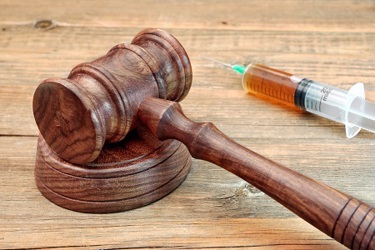Should The Biosimilar Industry Worry Over AbbVie's IPR Triumph?

By Anna Rose Welch, Editorial & Community Director, Advancing RNA

AbbVie may be squeamish over pending biosimilar competition, but it seems to be getting its own punches in at biosimilar makers lately. As if its golden child Humira wasn’t enough of a promise land for biosimilar makers, the latest news from the company is making it even more alluring. At the recent J.P. Morgan conference, AbbVie released predictions that Humira will bring in $18 billion in sales by 2020. (The drug brought in $10 billion in the first 10 months of 2015 alone, after all.) This prediction goes against former analyst predictions that sales would shrink following the expiration of its composition of matter patent in December 2016.
However, biosimilar makers participating in the chase for some of Humira’s vast market share have been warned. According to AbbVie CEO Richard Gonzalez, the patent maze the company has established to protect its best earner will be treacherous. In fact, Gonzalez says there will likely be no market entry for a Humira biosimilar until 2022, thanks to the strength of Humira’s IP protection.
And after last week, the biosimilar industry is likely feeling the impact of AbbVie’s IP investments. The Patent Trial and Appeal Board (PTAB) kicked Amgen’s two Inter Partes Review (IPR) challenges to the curb last week on the basis that Amgen’s claims were not persuasive enough. Bloomberg perhaps said it best by using the word “kittenish” to describe the biosimilar industry after this upset.
Amgen v. Humira: The Biosimilar Roadblock
Last June, Amgen challenged two patents protecting stable formulations for anti-human Tumor Necrosis Factor alpha antibodies. In its claims, Amgen argued these patents were invalid and should never have been granted. According to the company, these formulations were not that different from earlier antibody formulations. In the end, the PTAB sided with AbbVie in arguing that preparing a stable liquid aqueous pharmaceutical formulation is an unpredictable process.
As is to be expected, this is not the last we will be hearing from Amgen about this challenge. IP expert Lisa Mueller of Michael Best & Friedrich LLP, offered her thoughts on the matter in a Biopharma-Reporter article, saying, “The game is far from over. While it would’ve been beneficial for Amgen to get the two patents knocked out using the IPR procedure, it seems like Amgen and AbbVie are headed for a knock-down, drag-them-out fight in court over these patents.” It’s also important to remember that AbbVie isn’t necessarily safe or guaranteed more wins from other IPR challenges in the future. Coherus BioScience currently has three IPRs filed over Humira’s method of treatment patents, according to Mueller. Because of these pending decisions and the likelihood of other challenges, Mueller says it’s too soon to tell if AbbVie will actually maintain patent protection until 2022.
Is Amgen IPR Decision A Major Setback For Biosimilars?
Because of the impending legal battles now awaiting AbbVie and Amgen in the upcoming year, Amgen’s Humira biosimilar likely will be delayed from reaching the market. The IPR process boasts a more efficient and cheaper drug process for those involved in the litigation. But now that Amgen is going to have to take this challenge to the courts, both Amgen and AbbVie face a long period of wrangling and high legal fees. Beyond finances, these legal efforts could also impact each company’s drug development efforts as attentions and resources are paid to resolving these legal issues.
However, I haven’t yet lost hope for biosimilar makers based off of this decision. The IPR process was really brought to the attention of the pharmaceutical industry because of the efforts of Kyle Bass. This hedge fund director quickly built a reputation for himself as a warrior in the fight for cheaper drugs, while making a lot of money in the process by shorting stocks. Though the IPR has been termed a “patent killer,” it becomes clear in looking at AbbVie’s win last week, as well as Kyle Bass’ success rate for his IPRs that this process isn’t proving as lethal as once rumored. Kyle Bass thus far has had a 44 percent success rate, with 7 of the 16 patents reviewed being passed on to court.
Bass’ success rate and AbbVie’s victory over Amgen’s IPRs don’t reassure that the IPR process is a reliable way for biosimilar makers to get their products to market any quicker. But I think it’s also important to look at it another way: Bass’ record of getting an IPR sent on to trial might be slim, but it still exists, and from what I’ve read, there aren’t any commonalities among the patents passed on for review. Therefore, I’m hesitant to accept AbbVie’s recent triumph as a permanent set back to the industry or as an indication of a trend to follow for other biosimilar players attempting IPRs.
